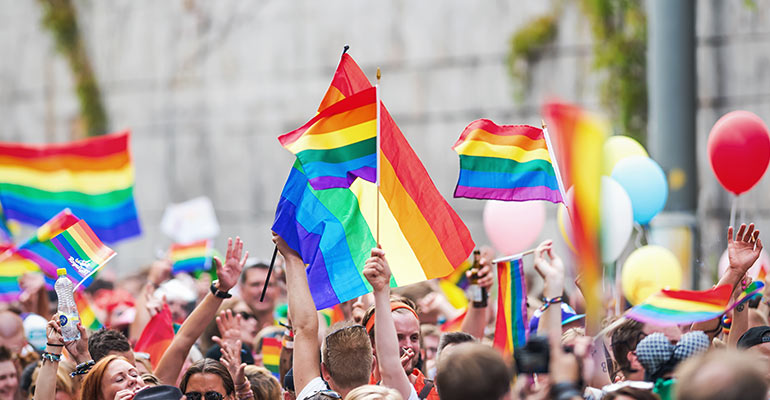
LGBT employment protection next major goal
Gay marriage is a fundamental right, protected by the U.S. Constitution and legal in all 50 states thanks to the 5-4 U.S. Supreme Court decision in Obergefell v. Hodges, announced June 26.
With this landmark decision behind them, many gay rights advocates are talking about the next major goal: employment protection for people in the LGBT community.
Currently, workers are protected nationwide from employment discrimination based on their sex, race, color, religion and national origin. But there is no federal law that protects gay or transgender employees from discrimination — and it’s not for lack of trying.
Every year since 1994, the Employment Non-Discrimination Act (ENDA) has been proposed in the U.S. Congress. The proposed legislation would prohibit discrimination in hiring and employment on the basis of sexual orientation by employers with at least 15 employees. In 2007, gender identity protections were added to the legislation for the first time.
The ENDA has never passed, and groups including the Human Rights Campaign are working to make sure it passes in the future.
Nonetheless, in the past decade, many states and municipalities have passed their own laws banning workplace discrimination on the basis of sexual orientation. Currently:
- 21 states and D.C. have laws banning discrimination in the workplace based on sexual orientation
- 18 of those states also make it illegal to discriminate on the basis of gender identity
- An executive order makes it illegal for the federal government, its contractors and subcontractors to discriminate on the basis of sexual orientation and gender identity
- About 90 percent of Fortune 500 companies include sexual discrimination in their non-discrimination policies.
Despite this progress, many LGBT supporters would like to see a federal statue extending Title VII’s coverage to sexual orientation and gender identity. Such a move would make it illegal for an employer to discriminate, harass or fire a person because he or she is gay or transgender.
This is a major issue with real consequences. According to a 2011 report by the Williams Institute at UCLA School of Law, 42 percent of lesbian, gay and bisexual survey respondents said they had experienced employment discrimination at some point in their lives. And 27 percent had experienced employment discrimination in just the previous five years. Discrimination is worse for LGB employees who are “out” in the workplaces, versus those who are not.
Every day, Title VII protects people in certain classes. Last year, in Florida alone, 7,528 charges of discrimination were filed with the U.S. Equal Employment Opportunity Commission. Out of that, 2,189 were based on race, 2,159 were based on sex, 1,353 were based on national origin, and 311 were based on religion.
If sexual orientation and gender identity became protected classes, people in the LGBT community could receive similar protection against discrimination in hiring, firing and in daily workplace interactions.
Please Note: At the time this article was written, the information contained within it was current based on the prevailing law at the time. Laws and precedents are subject to change, so this information may not be up to date. Always speak with a law firm regarding any legal situation to get the most current information available.








